Meet the Winners of the 25th Annual Big Bang! Business Competition
The 2025 Big Bang! Competition began with an incredible 75 teams, but after three rounds of customer calls, pitch deck revisions and live pitches, the following seven teams were selected by judges to receive the first place award and the six sector awards. You can read more about the competition deliverables on the Big Bang! Rules and Tools page. Keep scrolling to meet the winning teams of the 25th Annual Big Bang! Business Competition!
First Prize | $25,000
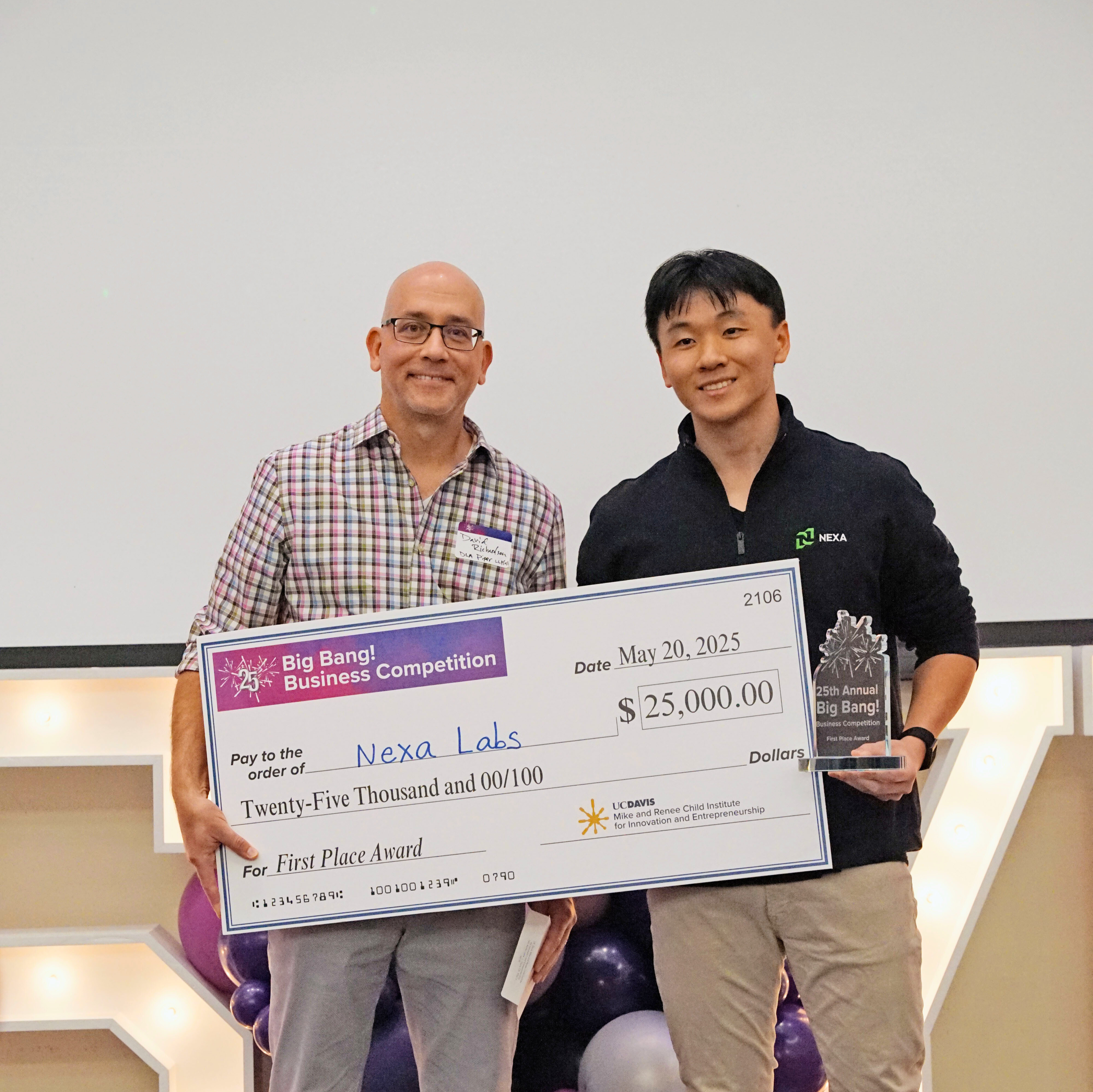
Nexa Labs
California Institute of Technology
Team lead: Zarif Azher
Team members: Alvin Zhang, Kenneth Chang, Kyle Berkson
A team of four undergraduate students from California Institute of Technology won this year’s $25,000 first prize for an innovation that provides real-time data on livestock health, helping farmers prevent costly disease outbreaks. Pasadena-based Nexa Labs has developed a subcutaneous biosensor that monitors herd health by tracking heart rate, respiration rate, blood oxygen and temperature. Farmers receive continuous data, including alerts for any potential disease outbreaks.
Nexa Labs’ technology targets bovine respiratory disease, the most common cattle health issue. Future versions of the technology will detect a wider range of health concerns and may eventually be available for use with humans. CEO Zarif Azher (pictured) said Nexa Labs will use the Big Bang! prize money to increase the scale of their technology validation trials, set to begin at partner universities in the coming months.
Sector Awards | $12,500 each
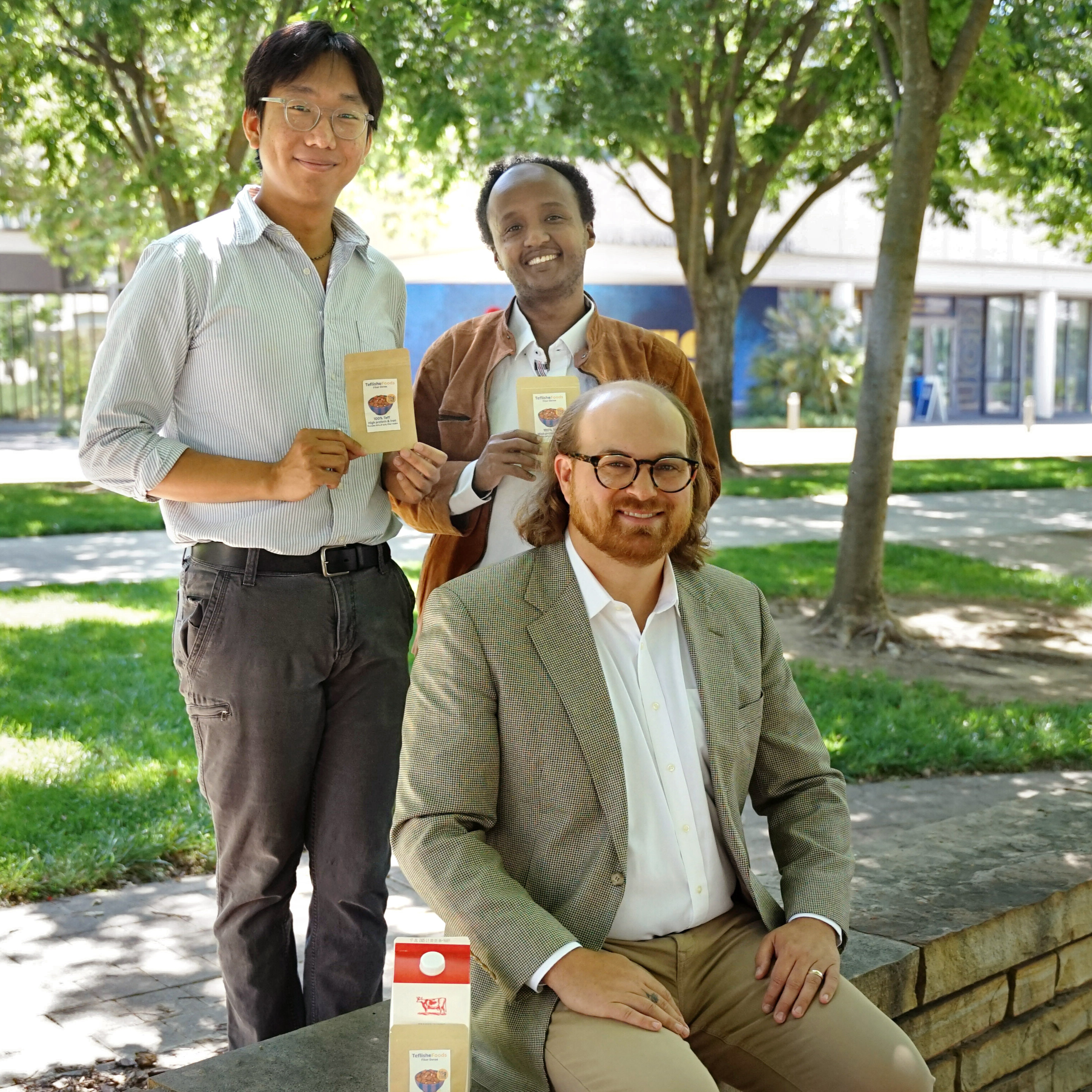
Food and Agriculture
Teflishe Foods
University of California, Davis
Team lead: Ali Said
Team members: Will Hazzard, Zhenglin Zhang
UC Davis Ph.D. student and Teflishe team founder Ali Said Yusuf was diagnosed with prediabetes in 2023, joining 100 million Americans with the condition. He needed to increase the fiber in his diet to control blood sugar spikes, so he developed a breakfast cereal made from teff, an ancient grain from East Africa.
According to Yusuf, 95% of Americans do not meet their daily recommended fiber intake. Teff-based products can help consumers increase their fiber intake through real food, starting with this newly developed breakfast cereal that delivers 60% of the daily recommended fiber allowance. The cereal offers 15 grams of fiber per serving and no added sugar.
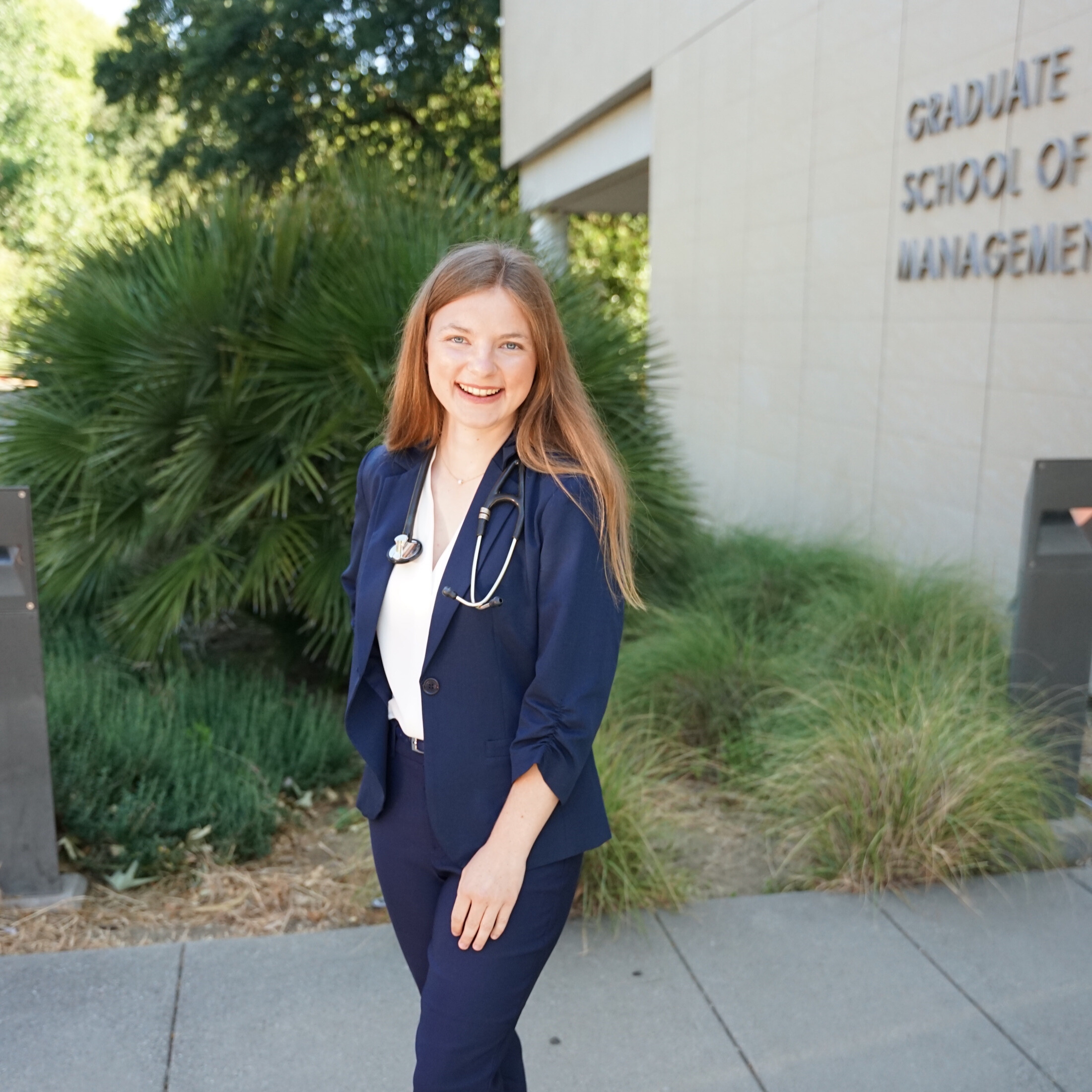
Animal Health + Industry
Vet Scientia
University of California, Davis
Team lead: Morgan Lunn
Team members: Lindsay Landstad, Dr. Raffy Doria, Dr. Marcela Machado
Currently, veterinary anesthesia students rely on lectures and limited hands-on practice to prepare for their careers, meaning a lot of the basic, practical skills are only learned once they reach real-world clinical settings. Recognizing the need for more wholistic anesthesia management training, team members Morgan Lunn (pictured), Lindsay Landstad, Dr. Raffy Doria, and Dr. Marcela Machado developed Vet Scientia.
Vet Scientia is a comprehensive learning environment where faculty can assign cases to students, who get valuable practice with real-world scenarios and equipment in a safe, virtual simulation. The team took home the $12,500 Animal Health and Industry award in this year's Big Bang! Business Competition.
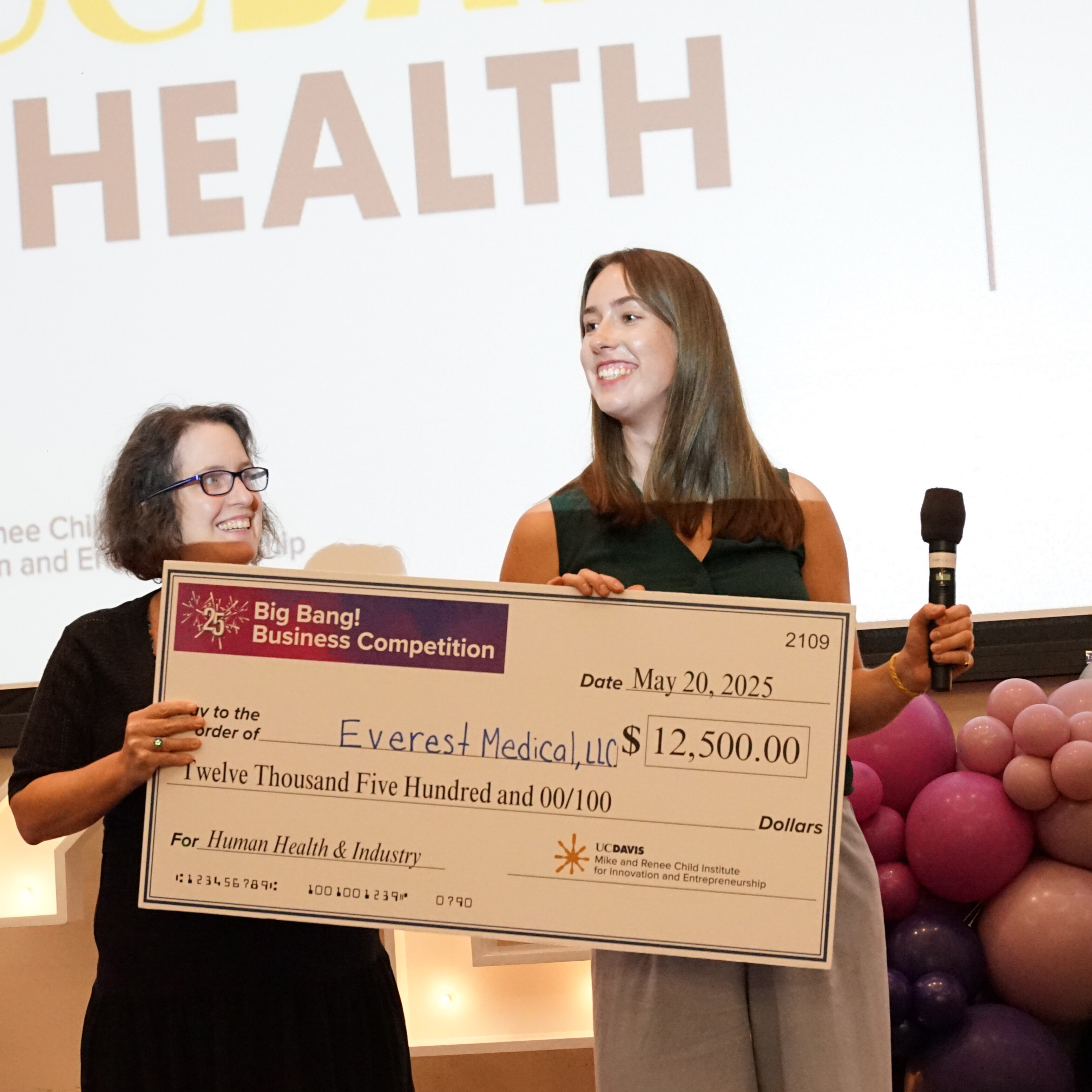
Human Health + Industry
Everest Medical, LLC.
California Polytechnic State University, San Luis Obispo
Team lead: Jenna Eissmann
Team members: Madeleine Mumford
Often referred to as "an obstetrician's nightmare," shoulder dystocia (SD) is a condition that can occur during birth where the infant's shoulders impact advancement and can create a life-threatening situation for the mother. The current and most common treatment fails to resolve SD 58% of the time, but bio-medical engineers Jenna Eissmann and Madeleine Mumford (pictured) hope to significantly improve outcomes through their product, EMbrace by Everest Medical, LLC.
EMbrace acts as an extension of the physician's hands, allowing them to safely maneuver the infant into an optimal position. With the $12,500 Human Health and Industry award, the team is excited to continue developing their product. They hope to eventually bring EMbrace to every obstetric hospital in the country.
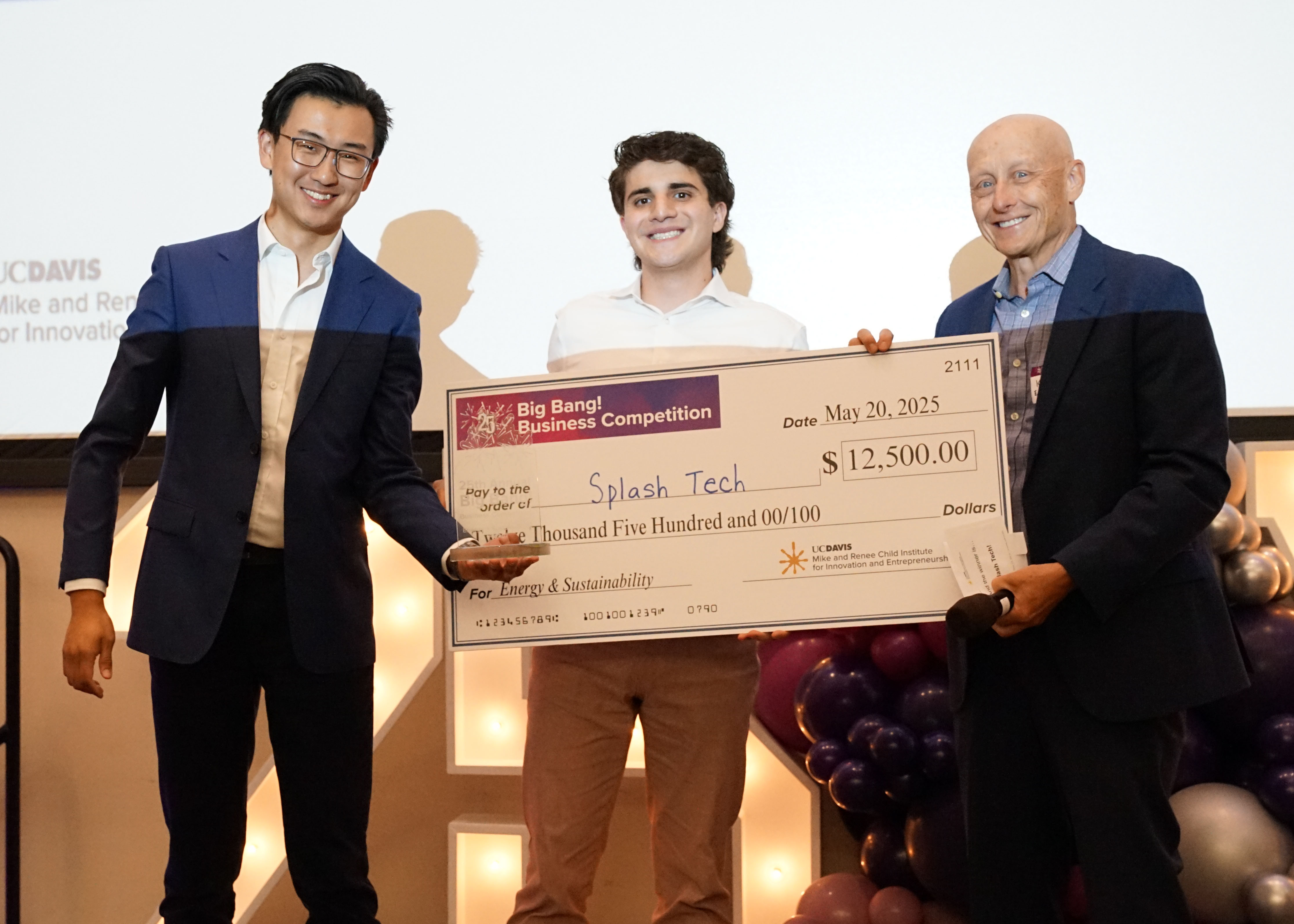
Energy + Sustainability
Splash Tech
Sacramento State University
Team lead: Gabriel Sigala
Team members: Qinyu "Rain" Sun, Sam Louderback, Thomas Wicklund
According to a survey by the country's largest pool supplier, Leslie's, the majority of homeowners struggle to correctly balance the chemicals of their pool--a crucial aspect to maintain a safe and clean pool. To help solve this issue, Gabriel Sigala and Rain Sun (both pictured), along with Sam Louderback, and Thomas Wicklund, created Splash Tech.
Splash Tech's solution involves a sensor box that is installed next to the pool pump where it measures seven key chemicals a day. These readings are available on the accompanying app, where customers get AI-powered instructions to help them fix any imbalances quickly and easily. Splash Tech is also working on a dispensing unit, hoping to bring full-automation to pool chemical management.
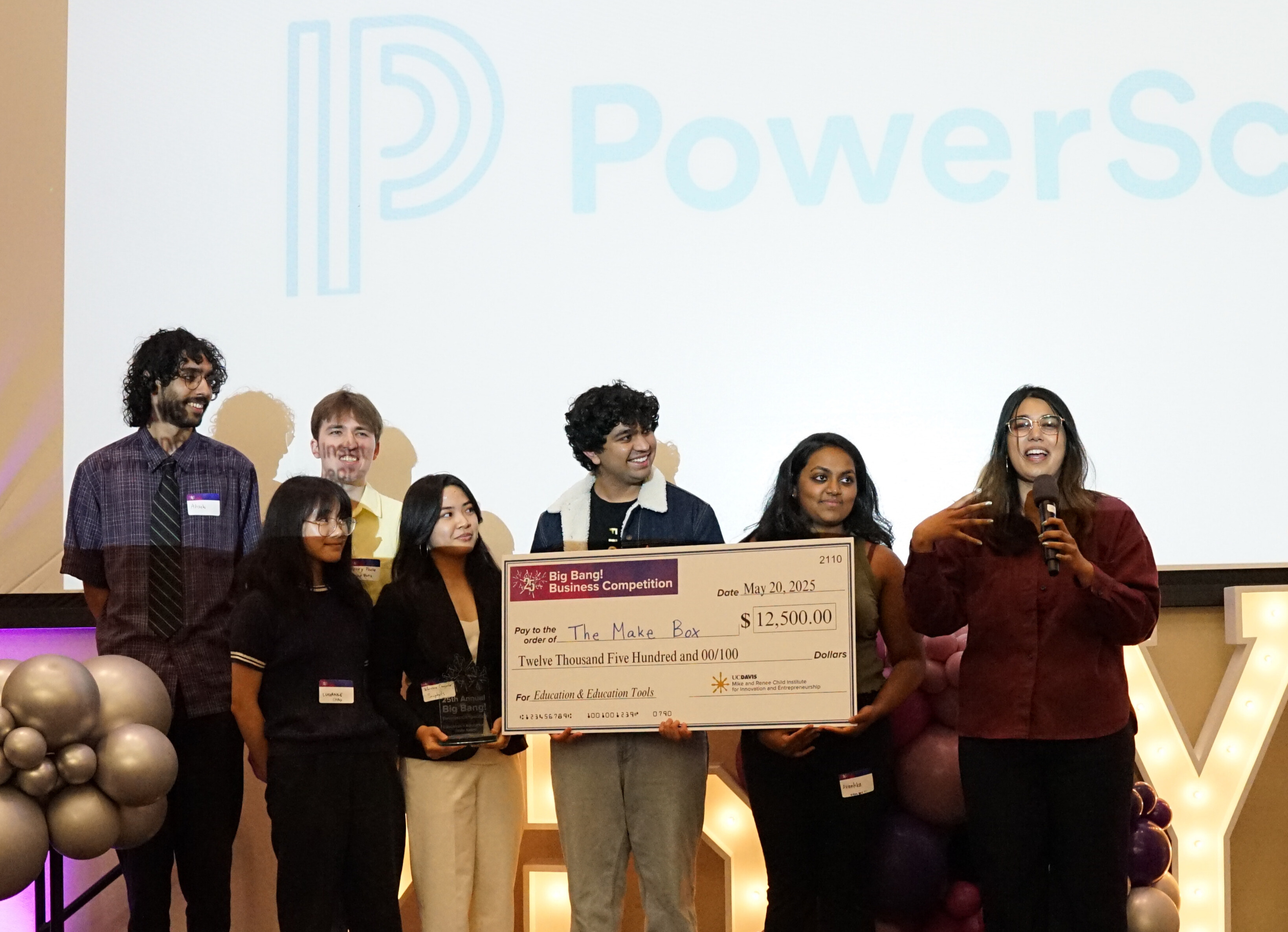
Education + Educational Tools
The Make Box
University of California, Davis
Team lead: Kavya Khare
Team members: Avantika Varma, Suhani Khanna, Mallika Joshi
The Make Box is the product of team founder and UC Davis student Kavya Khare’s passion for hands-on STEM learning. She realized that most children lack access to accessible, creative and engaging STEM tools.
The Make Box team developed their flagship product, SnapBots, as a modular robotics kit that includes programmable cubes with different functions, such as light sensing and sound activation that snap together with magnetic connectors. Children can follow instructions to build standard bots, such as an alarm bot, or they can invent new creations with the drag-and-drop coding interface.
The team took home the $12,500 Education and Educational Tools sector award, which they plan to use to offer free workshops and pilot programs for SnapBots in local schools.
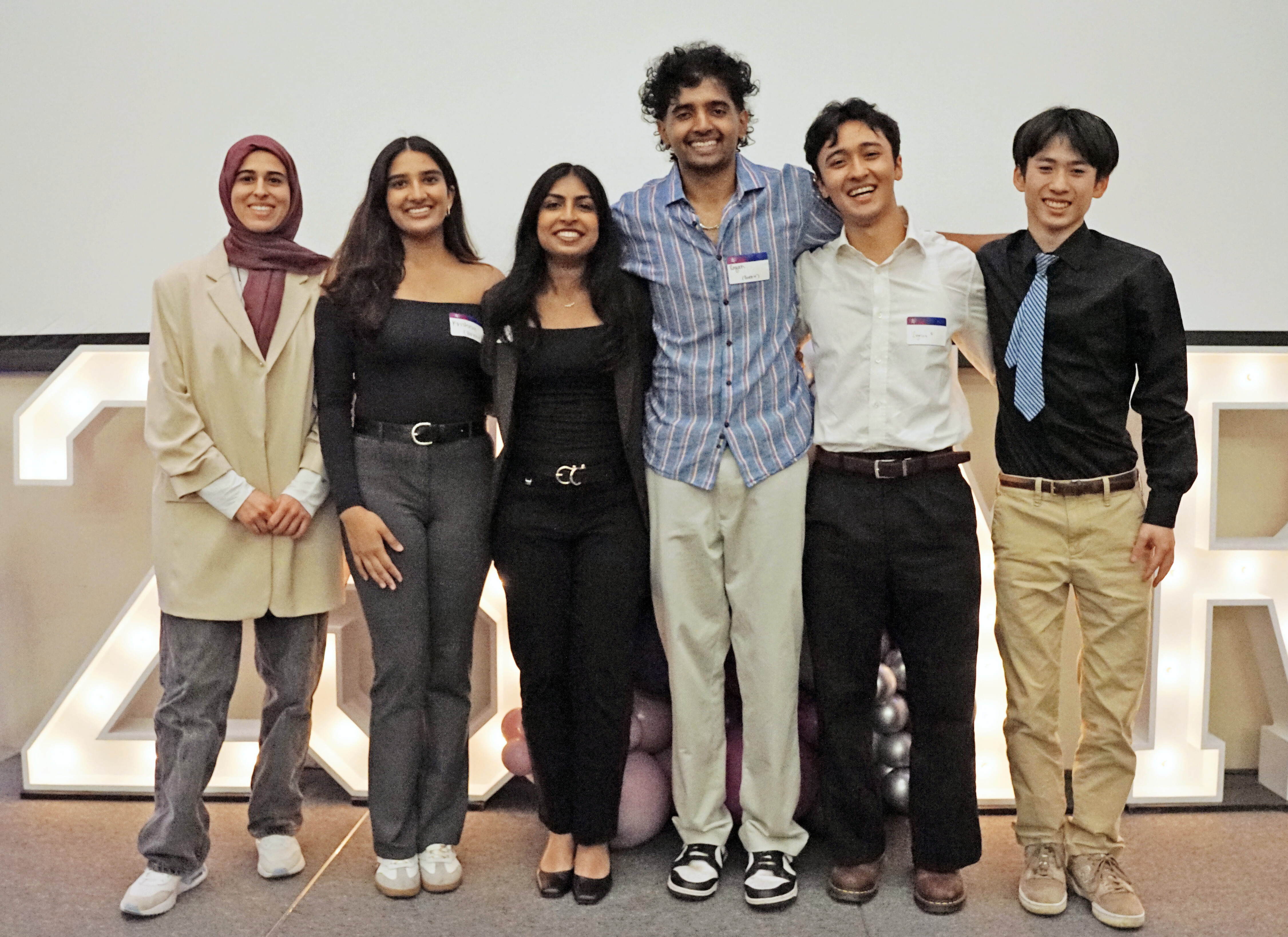
Social Entrepreneurship
Buzzit
University of California, Davis
Team lead: Parinita Gupta
Team members: Samrat Malisetti, Vedika Nimbalkar, Harsh Sangani
The seven-member UC Davis-based Buzzit team created a Pinterest-inspired app allows students to search for a range of creative services provided by fellow students. Users can easily search for services, book appointments, and pay via the app, simplifying the process for both providers and customers.
Buzzit won the $12,500 Social Entrepreneurship award in the 2025 Big Bang!. They plan to use the prize money for marketing on social media as well as creating a Buzzit ambassador program that will take advantage of community-driven growth.